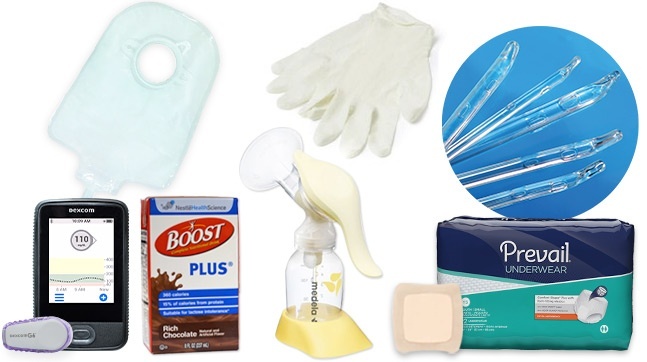Easy Tips for Helping Seniors Reduce Falls
This post was reviewed by our Director of Clinical Excellence and Oversight.
Luckily for Susan, no major damage was done during her fall. But millions of people over the age of 65 aren’t as lucky. According to the Centers for Disease Control (CDC), one out of five falls causes a serious injury such as a broken bone or a head injury and over 800,000 patients a year are hospitalized because of a fall injury, most often because of a head injury or hip fracture.
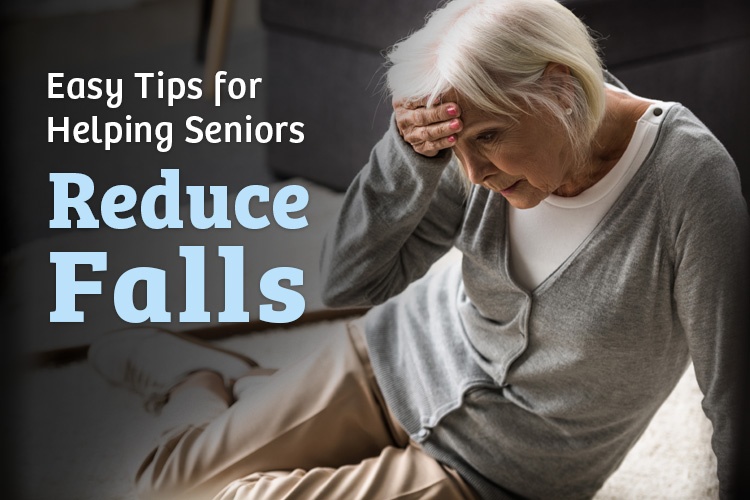
We’re glad you’ve fallen into this blog where we will address all things falls, from why they happen, to who’s most at risk, and what you can do about it. Our hope is that by focusing on proven prevention steps, you can reduce the chance of a fall for yourself or for someone you care about.
What Goes Wrong?
While it’s tough to pinpoint the exact cause of a fall, Dr. Manor explains, “Each fall occurs from the unique interaction of the person’s balance, the task they were performing just prior to the fall, and the ever-changing environment in which they were moving.”
A number of health conditions, or risk factors, contribute to falling. Most incidents are a result of several factors. The more of these conditions you have, the more likely you may fall. These risk factors include:
- Lower-body weakness
- Vitamin D deficiency
- Conditions that can make you weak, like dehydration or a urinary tract infection
- Walking and balance problems
- Side effects of certain medications
- Vision or hearing problems
- Foot pain or footwear
- Home hazards like broken steps or throw rugs
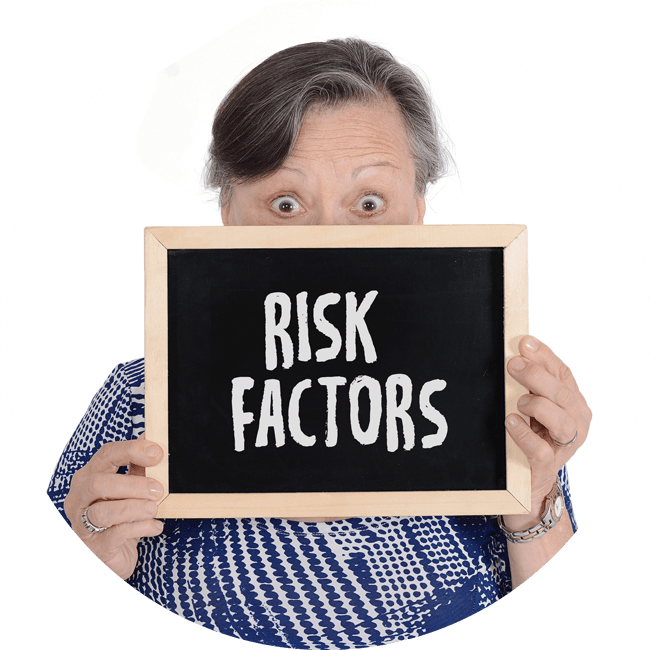
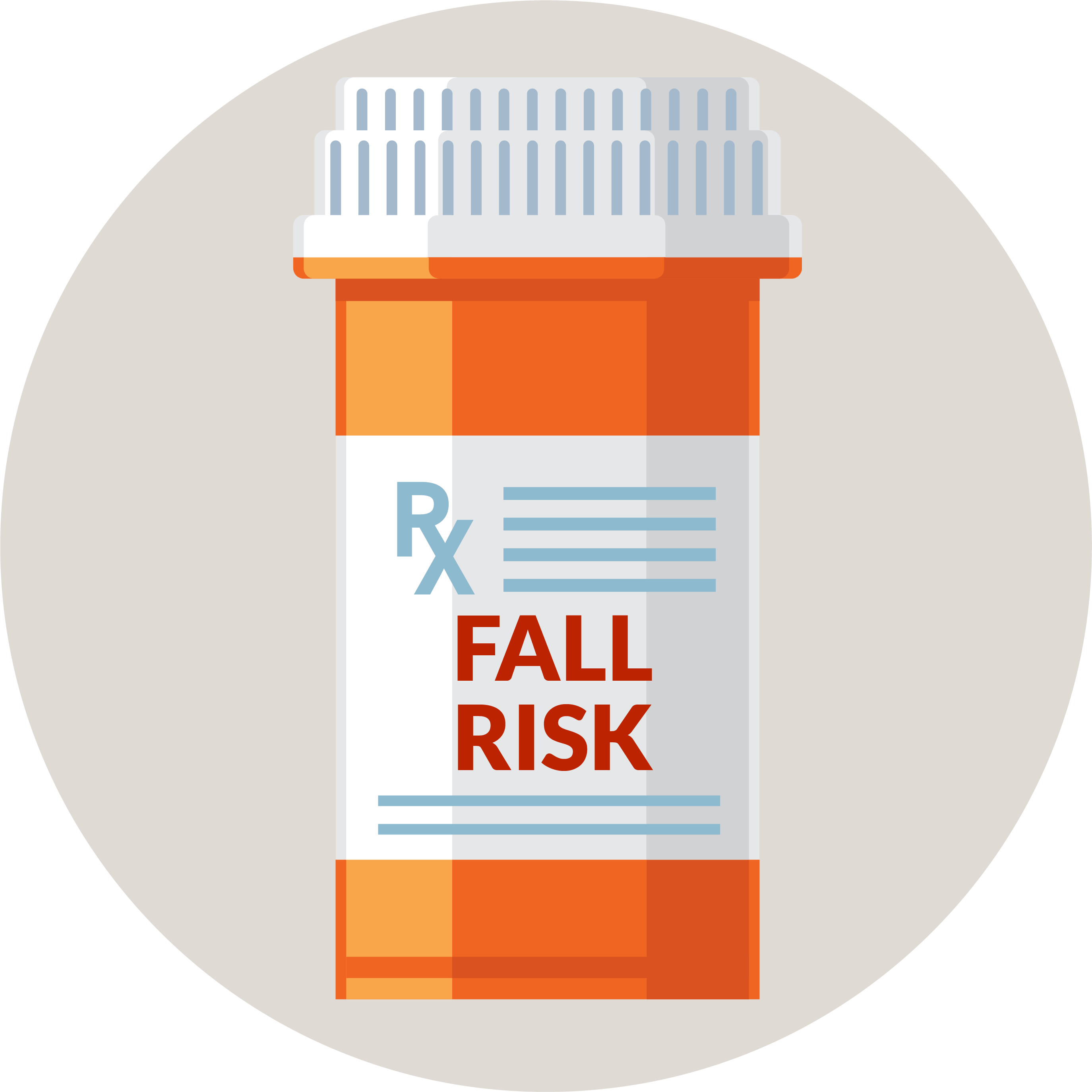
Talk with your healthcare team about the medications you take to see if some may be increasing your risk for a fall.
Use Your Head to Stay on Your Feet
OK, here comes the part where you have to do more than nod in agreement. Be proactive about your own health and safety by heeding these proven fall-prevention steps.
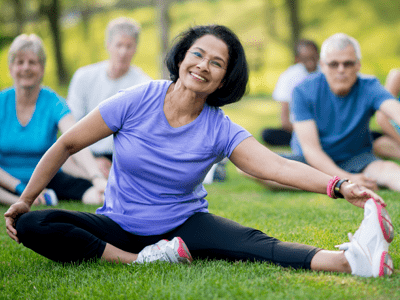
Build Exercise into Your Daily Routine. One recent study found that regular exercise can reduce the rate of falls by nearly 25 percent. Look for exercises like Tai Chi that target leg strength and balance. See the box below for simple instructions for a sit-stand exercise we love. And read more about the link between health and exercise in our blog, Two Tips for Health: Start Moving and Keep Moving! Of course, you’ll want to ask a member of your healthcare team before starting any exercise program.

Sharpen your mental game. The more we pay attention to our surroundings, the less distracted we are, and the less likely to topple over. Become more conscious about where your body is in space, and make changes when the environment changes.

Review your meds. Talk with your healthcare team about all the medications you take—prescription and over-the-counter—to see if side effects may be putting you at risk for a fall.
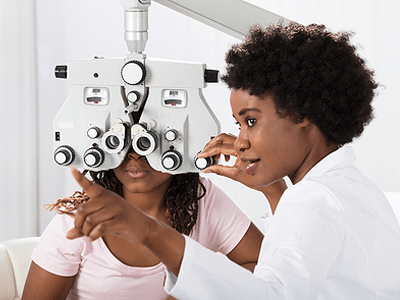
Check your eyes and ears. Regular vision and hearing checks are a must, as we rely on our eyes and ears to maintain our balance. If you need glasses or hearing aids, don’t hesitate to get them.
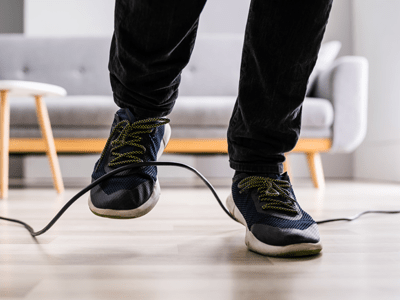
Take inventory at home. Take a good look at how you’ve organized your home and the things you use most often. Keep your medicines, clothing, and other daily needs within easy reach. Get rid of scatter rugs and trailing cords, and be sure furniture is not blocking your access as you move through the house. Keep your home well-lit. Install grab bars in the toilet and shower, and handrails on both sides of the stairs.
Get rid of scatter rugs and trailing cords and make sure furniture is not blocking your access as you move through the house.
After the Fall
According to one estimate, more than half of seniors who fall don’t share the information with their doctor. Not a good idea, says Dr. Leslie Kernisan, a geriatric medicine specialist. She urges those who have taken a tumble to get checked out.
Your healthcare provider can help to identify any underlying health problems such as anemia, pneumonia, heart issues, or mini-strokes that may have contributed to the fall. Dr. Kernisan says it’s especially important to test your blood pressure while sitting and standing to make sure your level isn’t dropping as you get up.
Sometimes, a post-fall checkup will reveal low vitamin D levels that can lead to falls and fragile bones. If your practitioner finds your balance is off, the problem could lie with your feet, joints, or back. Your doctor will advise you if physical therapy or medication could help.
One of the best ways to improve body mechanics and balance is a simple sit-stand exercise. Here’s how it’s done:
- Sit on a sturdy chair that won’t slide or roll, with your feet flat on the ground. Have something sturdy in front of you like a countertop in case you need support. Scoot forward so your bottom is near the front of the seat.
- Lean your chest out over your toes with your body weight forward. Squeeze your glutes (butt muscles) as you rise to a standing position.
- Slowly sit down and repeat. If you need to put your hands on the arms or seat of the chair, that’s OK, but the goal is to get up and down without your hands. Try to do these 10 times twice a day.
Stay Upright, Stay with HCD
Falls can cause serious damage to a person’s wrists, hips, and ankles. They can also bruise your self-esteem and confidence. But just because you’ve passed that Medicare birthday doesn’t mean falls will happen. Take the necessary steps to stay upright so you can move easily and live fully.
One way to reduce falls is to reduce stress in your life. You can eliminate the hassle of going to the store for medical supplies by letting Home Care Delivered ship your insurance-covered medical supplies for diabetes, wound care, urological conditions, and ostomy right to your door. We even communicate with your doctor and do the paperwork for you!
Keeping an eye on your blood pressure? We’ve got BP monitors that will help. And if you have Medicaid as your insurance, we may also be able to send incontinence supplies at no cost to you.
Feel free to enter your phone number on the bottom left of the screen. Our award-winning customer care team will give you a call. Or call us at 804-885-4101 and enroll today.

Don’t fall down, fall in love with HCD’s industry-leading customer care and friendly customer service agents. We look forward to being your medical supply delivery partner.
Disclaimer:
Unless otherwise noted, the recommendations in this document were obtained from the sources indicated. Be advised that information contained herein is intended to serve as a useful reference for informational purposes only. HCD cannot be held responsible for the continued accuracy of or for any errors or omissions in the information. All trademarks and registered trademarks are the property of their respective owners.

